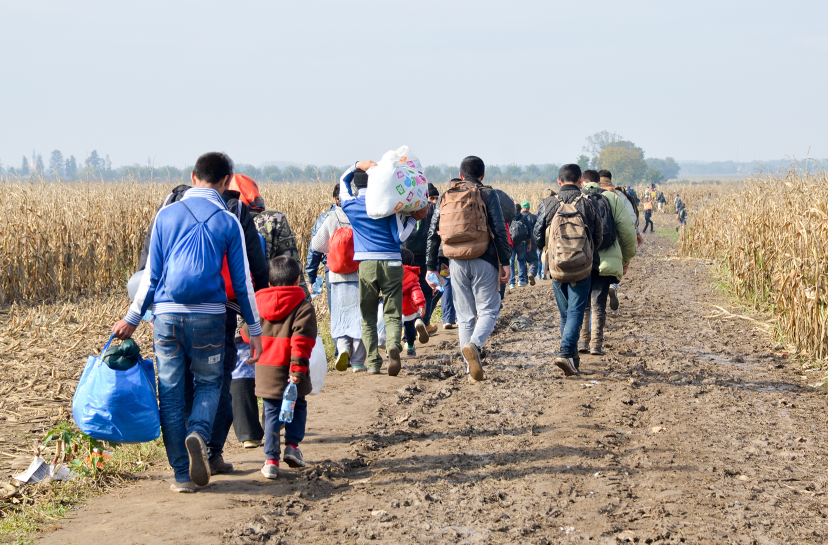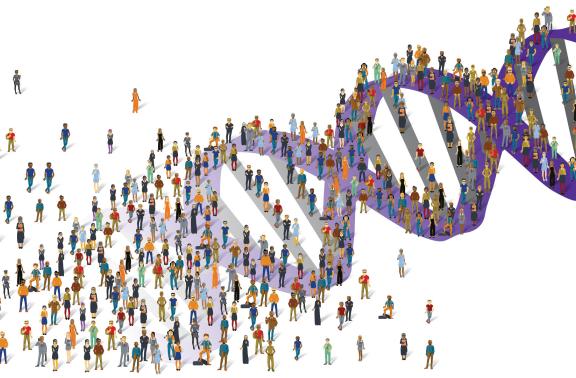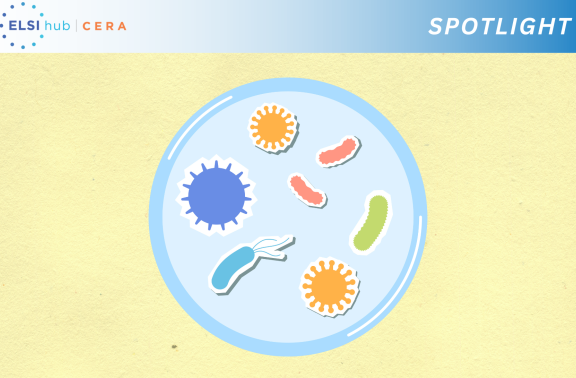
Developing Resources for DNA Testing at the Border: BorderDNA Working Group
Emerging technological advances and political shifts have expanded immigration-related DNA applications beyond relationship tests within a family for visa petitions. Several U.S. government programs now involve collection or use of DNA data for
- family reference DNA sample collection for identification of missing migrants;
- DNA data collection of migrant detainees for the federal criminal DNA database; and
- rapid DNA technologies instated at border points for verification of familial relationship claims.
DNA data is beneficial in immigration processes for demonstrating relatedness in family reunification, investigating human trafficking, identifying fraud, and identifying deceased migrants who die crossing the border.
These applications, however, bring with them an array of ethical, legal, and societal questions, including concerns for autonomy of movement, the disparate effects of collection practices on vulnerable populations, potential for abuses of power, and the need for protections from unauthorized use of DNA data. For instance, DNA data collected for humanitarian purposes (e.g., missing persons) or to screen for human trafficking also might be used as surveillance or to track migrants that might be a threat to the state.
Additionally, geneticization of the term “family” and stratification of visa petitioners and refugees based on biological interpretations of identity could shift policies towards stigmatization and discrimination. There is a realistic risk that genomic technologies implemented into immigration practices will develop into practices favoring biological relationships over other family and community links. A truly informed consent process is not feasible in the outlined scenarios. If the risk of not participating is deportation, family separation, or an inability to identify a deceased family member, then the imbalance of power precludes free, informed consent.
The BorderDNA working group recognizes the need for resources to inform migrant families of their rights, options (where they might have them), and descriptions of the policies and procedures they are facing. Providing migrant families information on the different DNA testing or collection processes is one step towards providing awareness and agency to the families and individuals undergoing DNA testing at the border. Operational DNA collectors (e.g., border agents, social workers, immigration attorneys) also would benefit from guidance on the nuances of using genetic information for testing for family relationships and how DNA data is shared (and protected) among agencies and across borders.
The BorderDNA working group will develop resources, such as FAQs on
- distinguishing DNA collection policies and practices;
- rapid DNA testing;
- family reference sample collection practices; and
- missing persons investigation processes.
Formats for resources will be a combination of printed materials, web-based information, and animated videos. The working group members will be comprised of experts in genetic policy, anthropology, immigration, genomics, education, and communication. The first year will focus on resource development, and the second on dissemination strategies. All resources will be developed for limited English proficiency families and made publicly available.
Please click here for more information.
CERA Working Groups are interdisciplinary teams that aim to deepen our understanding of emerging, high priority, or understudied ELSI issues using innovative approaches.


